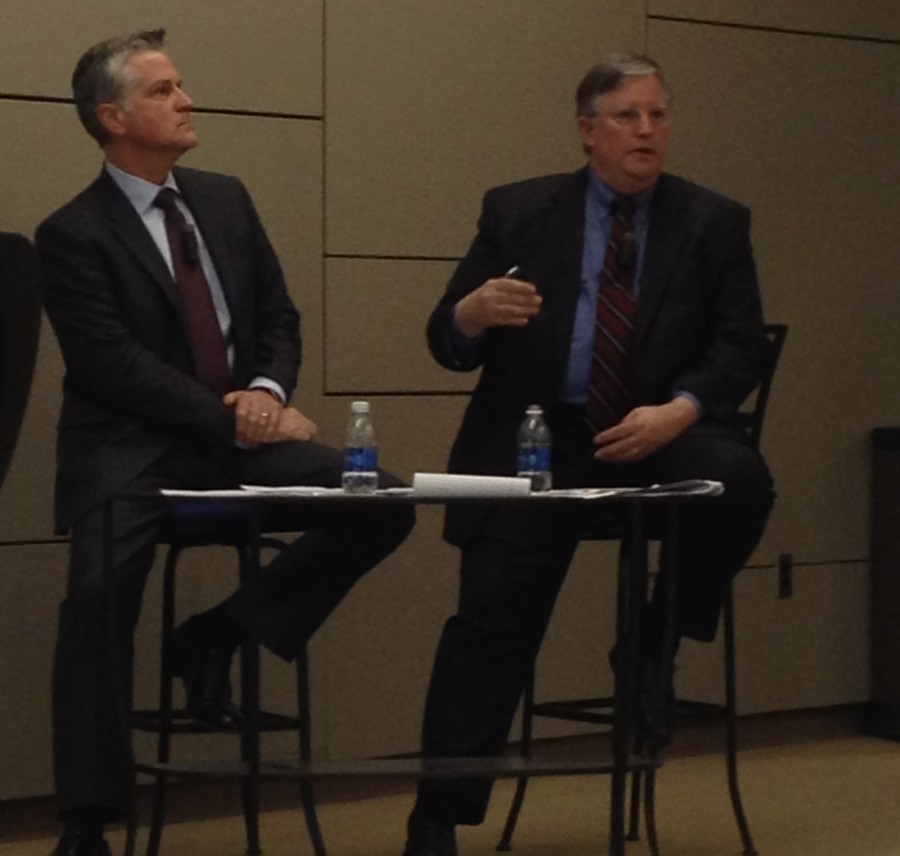 Gaps: you do what you can to mind them. Two years with braces for gap teeth and a landmark amendment for wage gaps can be effective. But even if they get smaller, sometimes it takes a lot more time and effort to truly eradicate them.
Gaps: you do what you can to mind them. Two years with braces for gap teeth and a landmark amendment for wage gaps can be effective. But even if they get smaller, sometimes it takes a lot more time and effort to truly eradicate them.
In the United States, social gaps affect many individuals and their ability to prosper in comparison to others. While they seem obvious, not everyone is willing to admit that these gaps need to be addressed.
The gender gap pops up consistently in media, and while it is not by any stretch more important than gaps in education, race and health, it remains visible in society even with efforts to counteract it. Women in the aggregate earn 77 cents to every dollar men make and while this, as well as workplace treatment and employment opportunities, varies across fields, the gender gap is a reality.
The gap also applies to who is in leadership positions or has considerable power in their job. Last week the Tribune addressed the instructor gender gap on campus, and the differences are considerable. Referencing a 2001 task force survey, 61 percent of women disagreed with the statement that women had equal access to positions of authority. 14 years later, we are still talking about this issue.
A Feb. 2 New York Times article about women in politics parroted the sentiment. The 2014 elections put more women than ever before in the House and Senate, yet the number of women leading committees in both dropped. The election led to a Republican overhaul of committee leaders, yet the fact there are only three women leaders remains striking.
A reasonable counterargument to the lack of women in positions in power is that women do not have the seniority and experience expected of committee heads. Even though this rings true for most male politicians in the House and Senate, this can seem like an excuse for why women tend to be overlooked. Relying on seniority as the key indicator of a leader puts women automatically at a disadvantage, as fields like politics and higher education have been historically male-dominated. There have been recent shifts, yet leadership often remains “man’s work.”
It has also been argued that women who have seniority are out of touch, can no longer be effective in their positions and must be reassigned to lower positions. Older experienced female politicians and professionals, like former Secretary of State Hillary Clinton and Supreme Court Justice Ruth Bader Ginsburg, tend to face ridicule for staying in their fields “past their prime,” which some say keeps other women out.
It is an unfair catch-22 when a woman cannot attain leadership because she has either not been around long enough or has stayed around too long. And of course, it does not tend to work that way for male professionals.
Each politician, professor and professional brings their own skill set to their position, yet the emphasis is put on who got there first and is the best at the work. Merit and experience, however, are not always seen to the benefit of all, and gender can be used as a double standard to keep some people from getting a job they could do well.
As a woman considering a future in academia – and maybe politics, if I can get over my nightmares from watching “House of Cards” – it is disconcerting to note how difficult it can be for women to get into these fields and to move up in the ranks.
While it is unlikely we can make over the environment entirely, and would face major backlash if we attempted to do so, we could at least learn to look at it in a new light.
In reality, the U.S. is not a meritocracy; not all those in power have been selected for their abilities. A gender gap remains as well as many others. Rather than ignoring these social facts, dealing with them could prove more effective.
For any gap, from race to wage, to be addressed efficiently, there must be consideration for the influence of historical, economic and social factors involved. Understanding the backstory of what is really at stake and important could close things up and bring us to the social state in which we already pretend to live.



